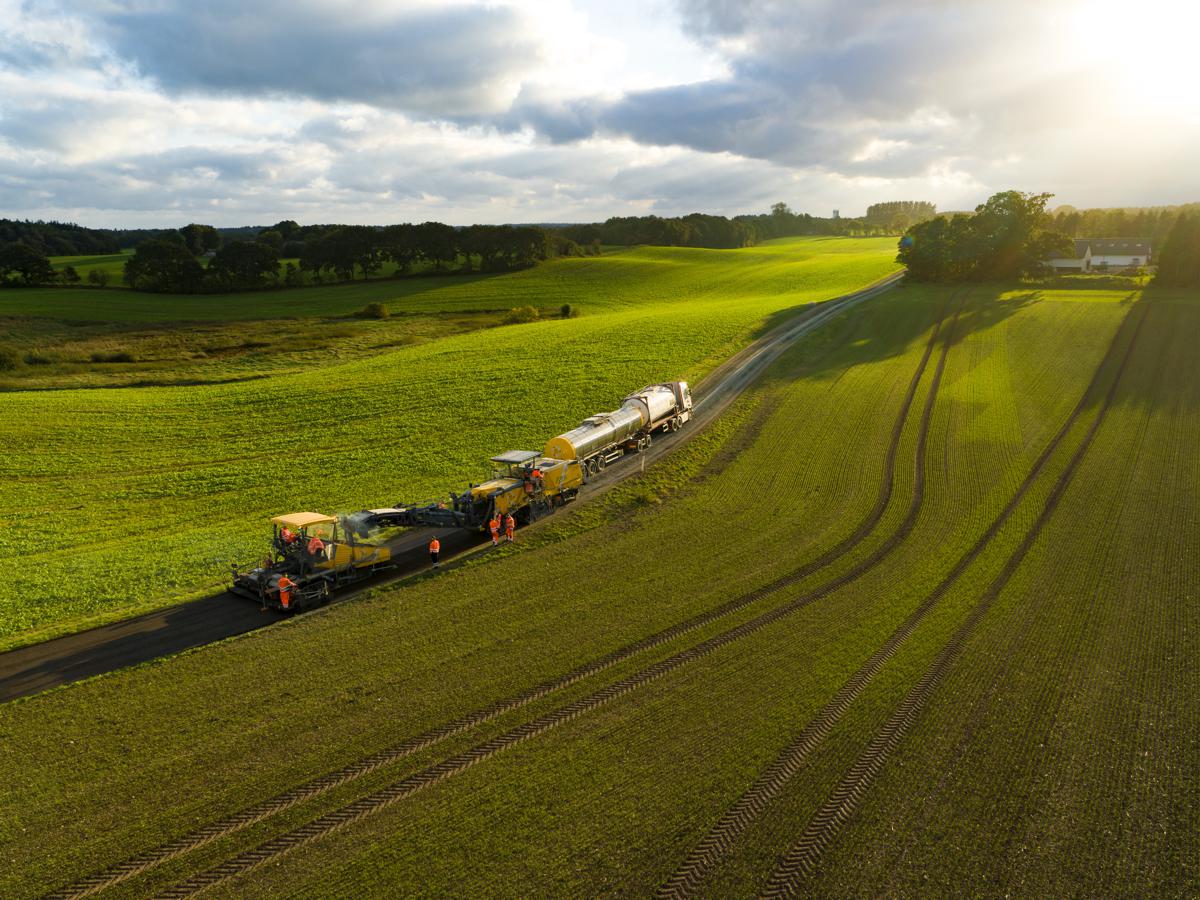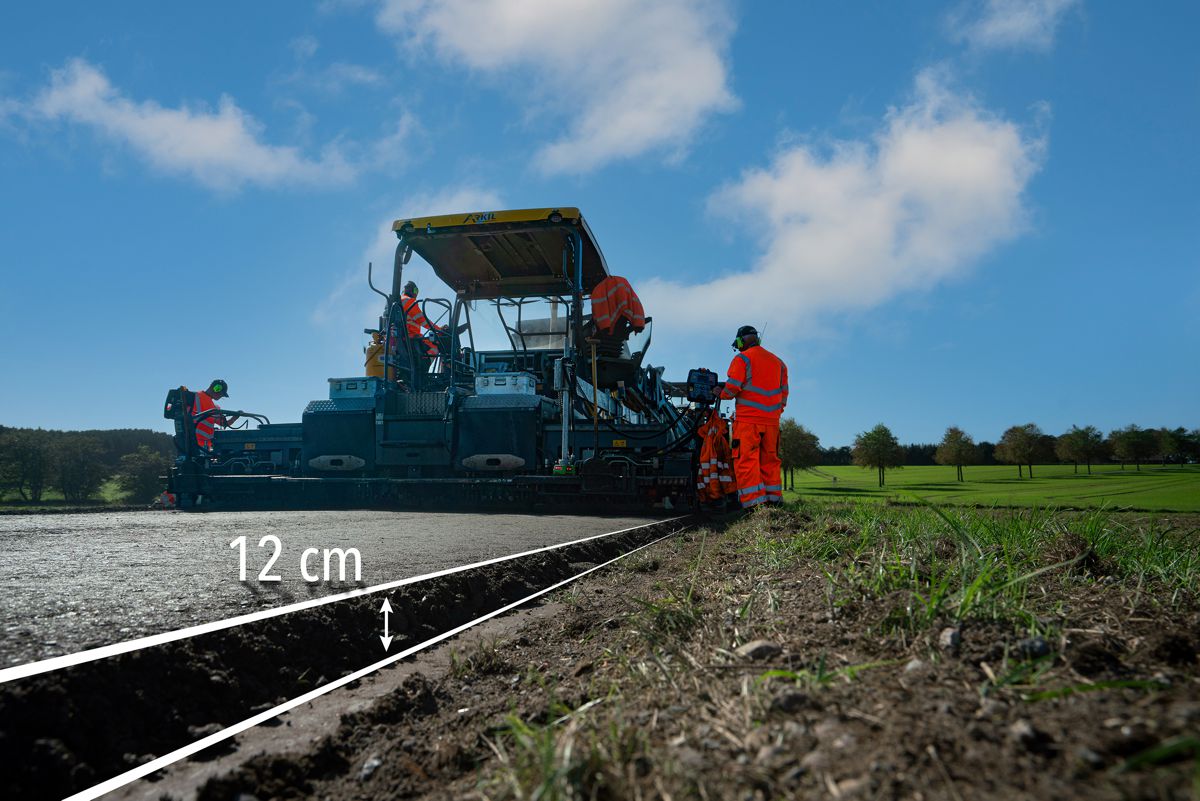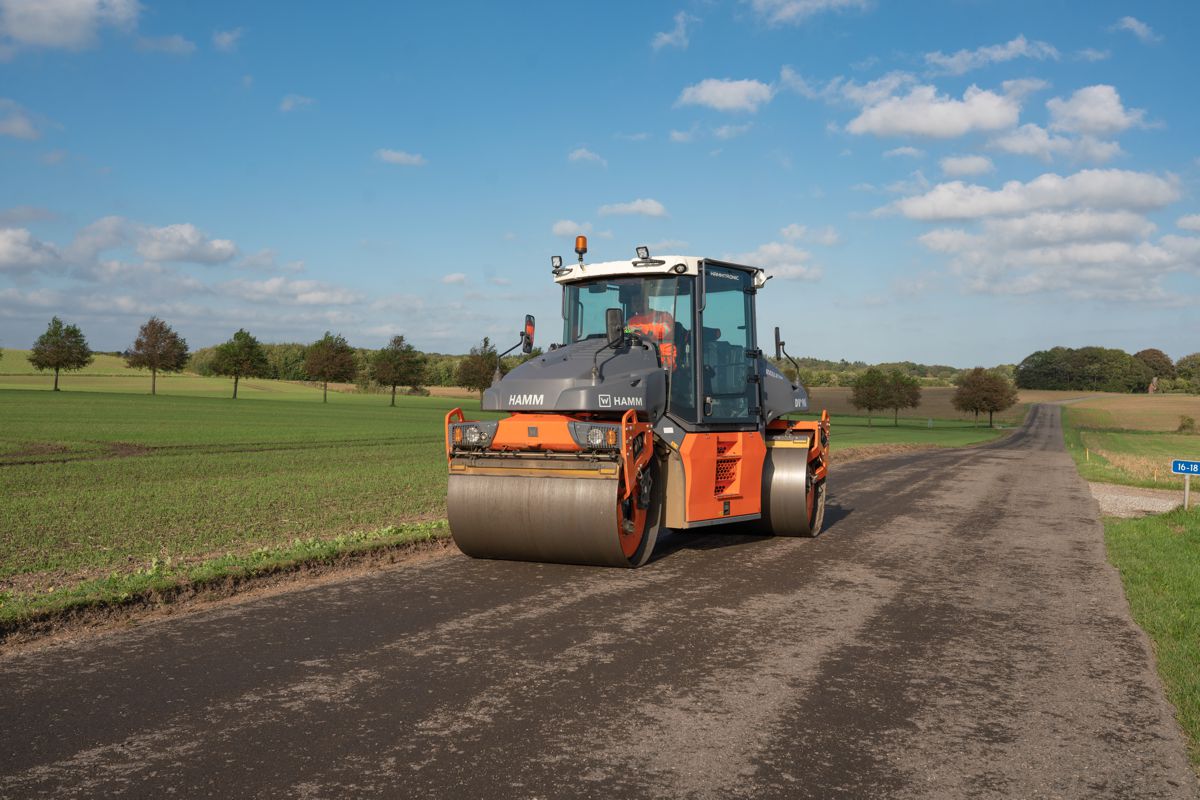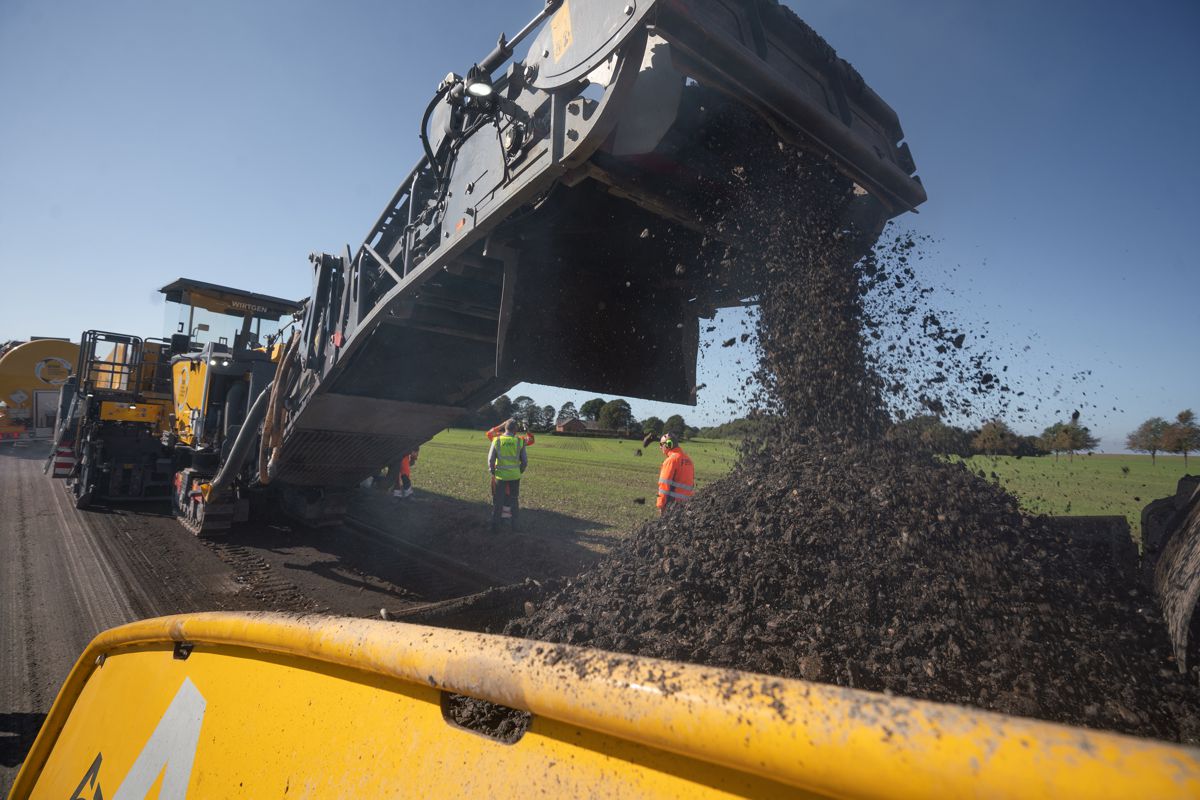Faster, lower cost and sustainable Cold Recycling with Wirtgen
What surprised residents, the municipal authorities and construction engineers was just another job for the cold recycling experts from Danish contractor Arkil A/S.
In fact, everyone involved was seriously impressed. The cold recycling train of the Wirtgen Production System centred on the W 380 CRi rehabilitated and widened the Sinding Hedevej near Silkeborg in a single pass.
The project turnaround time could hardly have been much faster. It took Arkil A/S only four days to complete the new base layer and reopen it for temporary use by traffic.

Denmark – Silkeborg
In comparison, conventional asphalt paving would have involved milling off the entire road surface in several stages and then widening and repaving the roadway from the ground up. In-place cold recycling eliminated all these separate steps. Foamed bitumen and cement were added to the existing asphalt material and processed in-place to produce an as-new BSM base layer. The old road surface was milled off by the W 380 CRi to a depth of 15 centimetres. Around 300 t of material per hour were transferred to the Vögele SUPER 2100-3i paver next in line, which laid the new pavement profile with a width of 5.5 m and a depth of 12 cm, all in a single pass. The cold recycling train worked at a speed of 4 m/min along the 3 km section of the Sinding Hedevej. As soon as the Hamm rollers had taken care of the final compaction, the road was able to be temporarily reopened for local road users.
Lower costs – reduced site logistics – less binding agents
According to Arkil, the costs of cold recycling were 30 percent lower than for a conventional rehabilitation project. In fact, the municipal authorities in Silkeborg were so impressed that they are already planning the next road construction project with the cold recycling method.
Conservation of resources by cold recycling
Materials played the biggest role in the reduction of overall project costs. In the cold recycling method, considerably less bitumen needs to be added as a binding agent than would be required for the production of new asphalt mix. This is made possible by the foamed bitumen technology from Wirtgen. Hot bitumen was delivered to the site and automatically injected in-place – i.e. during the milling and mixing process – with the Vario injection bar. Thanks to process-dependent machine control, the feed volume was matched to the travel speed of the machine and ensured the homogeneity of the mix transferred directly to the SUPER 2100-3i paver.
Thinner surface layers
Another advantage: the final surface layer can be paved thinner than usual. In this case, a 3 cm surface layer was paved with the high-quality material, instead of the 4 to 5 cm generally used. This also reduced the construction costs.
Reduced site logistics costs
Further costs were saved by the reduction of the site logistics required. The recycled area of over 12,000 m² produced almost 4,000 t of material that didn’t have to be removed from the site. Assuming a load of 20 t per vehicle, this is equivalent to around 200 fewer haulage movements for material disposal alone.

Sustainable: Significantly smaller carbon footprint thanks to reduced site logistics
Here, in-place cold recycling recommended itself as the most suitable construction method for the job. The ability to recycle 100% of the existing construction material in situ played a decisive role in assuring the sustainability of the construction site. Two factors in particular enabled a significant reduction of CO₂ emissions: firstly, the elimination of a calculated 400 transport movements of material to and from the site and, secondly, a considerable reduction of the 3,800 t of fresh hot-mixed asphalt that would have had to be produced for the base layer.
According to Arkil, these factors enabled an up to 70% reduction of the overall CO₂ emissions.
Win-Win Situation for the Environment and the Municipal Coffers
Cold recycling with foamed bitumen is a technology that brings real advantages on every road rehabilitation project. Whether for in-place rehabilitation, as here with a CR-series cold recycler, full-depth recycling (FDR) through and below the base layer with a WR-series wheeled recycler or decentralised mixing of new BSM mix in a KMA 240i cold mixing plant, foamed bitumen technology always delivers extremely durable BSM mixes for a more sustainable road construction process chain. No matter which cold recycling method is chosen, users can always look forward to a considerable reduction of their carbon footprint and lower overall costs for primary resources.
The advantages of cold recycling with foamed bitumen have been impressively confirmed on numerous projects around the world, and the method has long since become a standard practice in the road construction industry. Only the basic situation on the project site decides which equipment should be used for the production and processing of the mix.

Project details
Equipment
- Wirtgen: W 380 CRi cold recycler
- Vögele: SUPER 2100-3i paver
- Hamm: DV+ 90i VV for final compaction
- Streumaster: SW 10 TA for pre-spreading aggregates
Site parameters
- Length: 3000 m
- Roadway width: 4.3 m
- Widening: +1.2 m to 5.5 m
- Time on site: 4 days for BSM base layer recycling
Recycling parameters
- Recycling method: In-place cold recycling
- Binding agents: Foamed bitumen
- Aggregates: Cement
- Recycling width: 3.2 m at W 380 CRi
- Recycling depth: 15 cm
- Paving height of BSM layer: 12 cm
- Productivity: 300 t/h
- Total volume recycled: 1,800 m³
- Saved material transport movements*: Around 400 *in comparison to conventional construction projects
- Wirtgen Group production system and Arkil A/S: A great team for service and quality





























